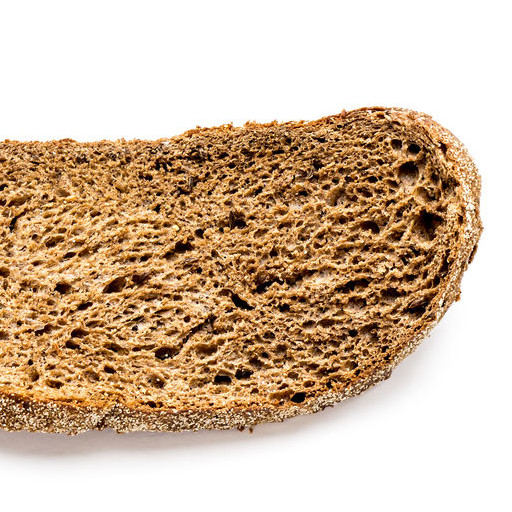
Staling
Also known as bread aging or product firming
What is Staling?
Staling or firming causes baked goods to lose their freshness and initial eating qualities.1 Depending on the product, staling involve both crumb and crust:
- Harsh, dry and crumbly
- Increased hardness and firmness
- Deterioration of taste and aroma
- Loss of moisture via migration from product core to crust
- Loss of crust crispness
- Crust toughening
Origin
Staling was once thought to be only caused by moisture loss from baked products. This theory was quickly disproved over 150 years ago. Now, it is associated with the retrogradation or recrystallization of starch molecules. It can even occur without water loss from the crumb.
How staling works
Staling occurs in products that contain starch, such as bread, buns and cakes. It begins immediately after bread comes out of the oven. Then, gelatinized starch starts to cool down to an ambient temperature and solidify, leading to retrogradation and molecular realignment.
Retrogradation of amylopectin in bread is a slow process. It is believed to be the major contributor to staling during storage. On the other hand, amylose retrogrades very quickly, during bread cooling. This is an advantage in slicing loaves without the product collapsing.1,2
Approaches to reduce staling in bakery products
Consumers often squeeze a loaf of bread before buying it to check its freshness. In this situation, they are assessing the elastic deformation of the loaf. A soft yet springy texture tells the consumer the bread is fresh. If the bread is too firm, the loaf is rejected as stale.
Strategies for delaying staling in bread are:1,2,3
| Formulation | Process |
|
|
Techniques used in assessing staling:4
- Rheological methods: Uniaxial compression and pasting properties
- Thermal analysis: differential scanning calorimetry (DSC)
- Infrared spectroscopy: Fourier transform infrared (FTIR), near infrared (NIR) reflectance, and nuclear magnetic resonance (NMR) spectroscopy
- X-ray diffractometry
- Microscopy: Transmitted and polarized light, confocal laser scanning and electron
- Sensory/organoleptic tests
References
- Cauvain, S.P. “Bread Spoilage and Staling.” Technology of Breadmaking, 3rd Edition, Springer International Publishing Switzerland, 2015, pp. 287–299.
- Rayas-Duarte, P., and Mulvaney, S. “Bread Staling.” Breadmaking: Improving Quality, 2nd Edition, Woodhead Publishing Limited, 2012, pp. 580–594.
- Cauvain, S.P. Baking Problems Solved, 2nd Edition, Woodhead Publishing, Elsevier Ltd., 2017, pp. 113–117.
- Kulp, Karel, J. G. Ponte, and Bert L. D’appolonia. “Staling of White Pan Bread: Fundamental Causes.” CRC Critical Reviews in Food Science and Nutrition 15.1 (1981): 1–48.

